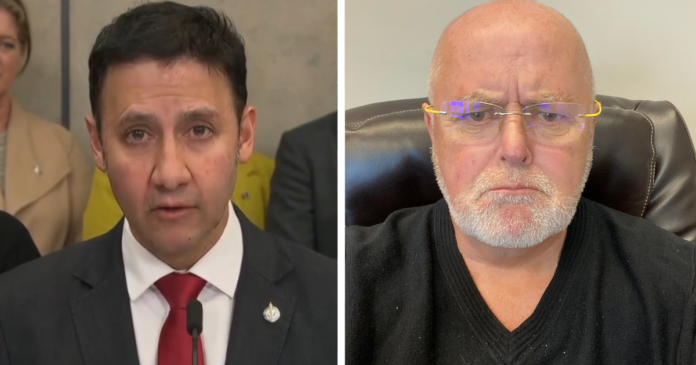Canada’s latest attempts to regulate the internet under the guise of “protecting children” from online pornography through various pieces of legislation has sparked the ire of former Canadian Radio-Television Commission vice-chair Peter Menzies.
On Monday, the Trudeau government tabled the Online Harms Act, Bill C-63, which is aimed at curbing the spread of it terms “online hate” and attempts to crack down on content that victimizes children. The bill also includes $70,000 in fines for so-called “hate speech” and even life imprisonment for hate crimes.
In addition to C-63 being tabled, Senator Julie Miville-Dechene’s private member’s Bill S-210, also known as an Act to restrict young persons’ online access to sexually explicit material, has been making its way through Parliament and is currently in second reading in the House of Commons. The Trudeau government does not support S-210, and believes it addressed the bill’s concerns through its Online Harms Act.
In an op-ed written in The Hub, Menzies agrees with prohibiting children’s access to online pornography, but argues that S-210 is “so clumsily constructed as to pose significant threats to privacy and free expression.”
Citing the internet advocacy group Openmedia, Menzies says S-210 could result in Canadians having to obtain government-issued IDs to access most internet services.
The former CRTC vice-chair also took aim at Pierre Poilievre’s Conservatives for supporting S-210.
While Poilievre opposes the government’s Online Harms Act, which he describes as “banning opinions that contradict the Prime Minister’s radical ideology,” the Conservative leader has publicly voiced his support for S-210.
“If the Conservatives genuinely want to give us back control of our lives and make us the freest people on earth, they could start by stepping back from their recent alliance with Big Government solutions and instead find ways to help individuals take control of their lives by managing what comes into their homes,” wrote Menzies.
Menzies provided advice for the Conservatives, providing an alternate solution to protecting children online.
“Leave legal content on the internet alone. By all means, ensure the Criminal Code is enforced, but do not, under any circumstances, put some puffed-up public servant in charge of patrolling the online world. The state has no business in the WiFi of the nation,” Menzies wrote.
“Second, empower parents and families with the equipment they need to control their household’s internet access as they see fit and work with the people who really understand technology to do so.”
Menzies argues that instead of further regulation of the internet, simpler solutions can be implemented to address children’s online safety.
The former CRTC vice-chair suggested a policy in which families were given the option to be alerted when devices connected to their account accessed an adults-only website.
“Sites of that nature could be, by regulation, watermarked in the same fashion as those embedded to identify images created by generative AI. Would that not serve the same purpose [as S-210?]” asked Menzies.Menzies has been a vocal critic of the Trudeau government’s attempt to regulate the internet. He has previously described the government’s Bill C-10, which expanded the mandate of the CRTC and granted powers to meddle in internet searches, as a “national embarrassment.”















